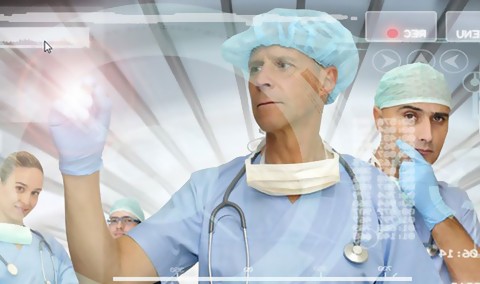Medical health issues involve the national economy and the people's livelihood, and environmental pollution and population aging are becoming more and more important, making it increasingly the focus of public attention and one of the priorities of government work. China's medical reform has been mentioned for many years, but the actual results are limited. In 2012, total US health expenditure accounted for 17.9% of GDP, Japan accounted for 10.1%, China only accounted for 5.4%, and Americans' medical and health expenditures were nearly twice that of Japan and 27.6 times that of China.
“Using a Chinese-style approach to solving world problems†is Li Keqiang’s ambition to promote China’s medical development in his government work report last year. In the just-released 2015 government work report, medical treatment became “Internet +â€. One of the connotations of the strategy. In the past few years, the Internet has subverted and rebuilt too many industries, such as e-commerce and Internet finance. Will medical health be far behind?
The transformation and competition in China's medical and health fields has just begun. The Internet is inciting “difficulty in seeing a doctor†or becoming a Chinese-style method to solve world-wide problems. Policy reforms may become an intrinsic key factor in BAT's involvement and transformation of health care.

Baidu is doing brain
  Baidu's layout: Launched the Dulife smart health equipment brand at the end of 2013; in July 2014, it launched a “Beijing Health Cloud†with smart device manufacturers and service providers to monitor user health data in real time; in January 2015, it explored mobile medical O2O with 301 hospitals. mode.
Just as Li Yanhong called for the "Chinese brain" plan at the two sessions, Baidu has long been doing "brains". Baidu has a lot of data, but it has been suffering from inefficient use. In 2012, Baidu launched “Baidu Cloudâ€, which showed the power of big data in areas such as city forecasting, college entrance essay prediction, and World Cup prediction. However, the specific business model is unclear.
In 2013, “Baidu Health†quietly went online, although low-key, but this will be a major direction for Baidu in the future. In 2014, Baidu’s strategic thinking gradually became clear. On the one hand, it opened its Baidu big data engine, accessed the information systems of various industries, and used the big data factory and Baidu brain to process data. For example, cooperate with the Beijing Municipal Government to access the latter. Health information system. On the other hand, people's health data, such as its Dulife smart wearables, are recorded through mobile health platforms and smart wearable devices.
At the same time, Baidu is also actively exploring the feasible mobile medical O2O model. In January 2015, it signed a cooperation agreement with the People's Liberation Army's largest comprehensive hospital, 301 Hospital, to explore the establishment of a new O2O service model and innovative operation model in the medical field.
When the medical data accumulation is large enough, the application scenarios of these data are very imaginative, including epidemic monitoring, disease prevention and control, clinical research, medical diagnosis decision-making, medical resource scheduling, and family telemedicine . Baidu's "brains" will get more comprehensive information, including personal physiology, to know you better than yourself.
Ali wants the market
Ali's layout: In January 2014, it acquired CITIC 21st Century for US$170 million. In addition, it also invested in medical websites such as Huakang Panorama, Medical Search Medicine, U Medicine and U Medicine.
Hand Liquid Soap,Hand Soap,Hand Sanitizer Gel,Aloe Hand Soap
Wuxi Keni Daily Cosmetics Co.,Ltd , https://www.kenidailycosmetics.com